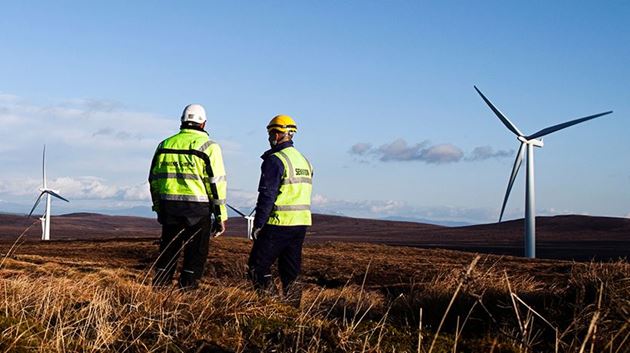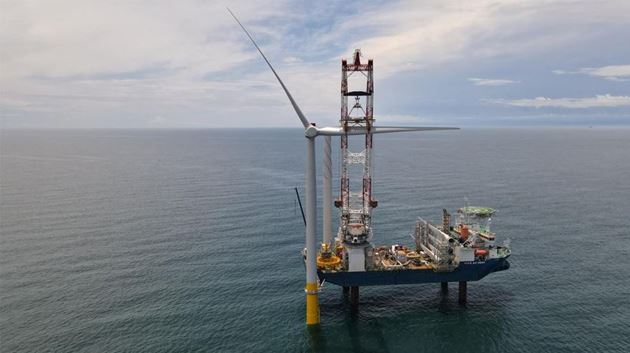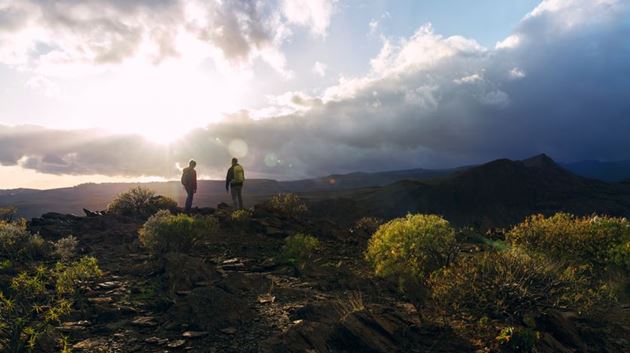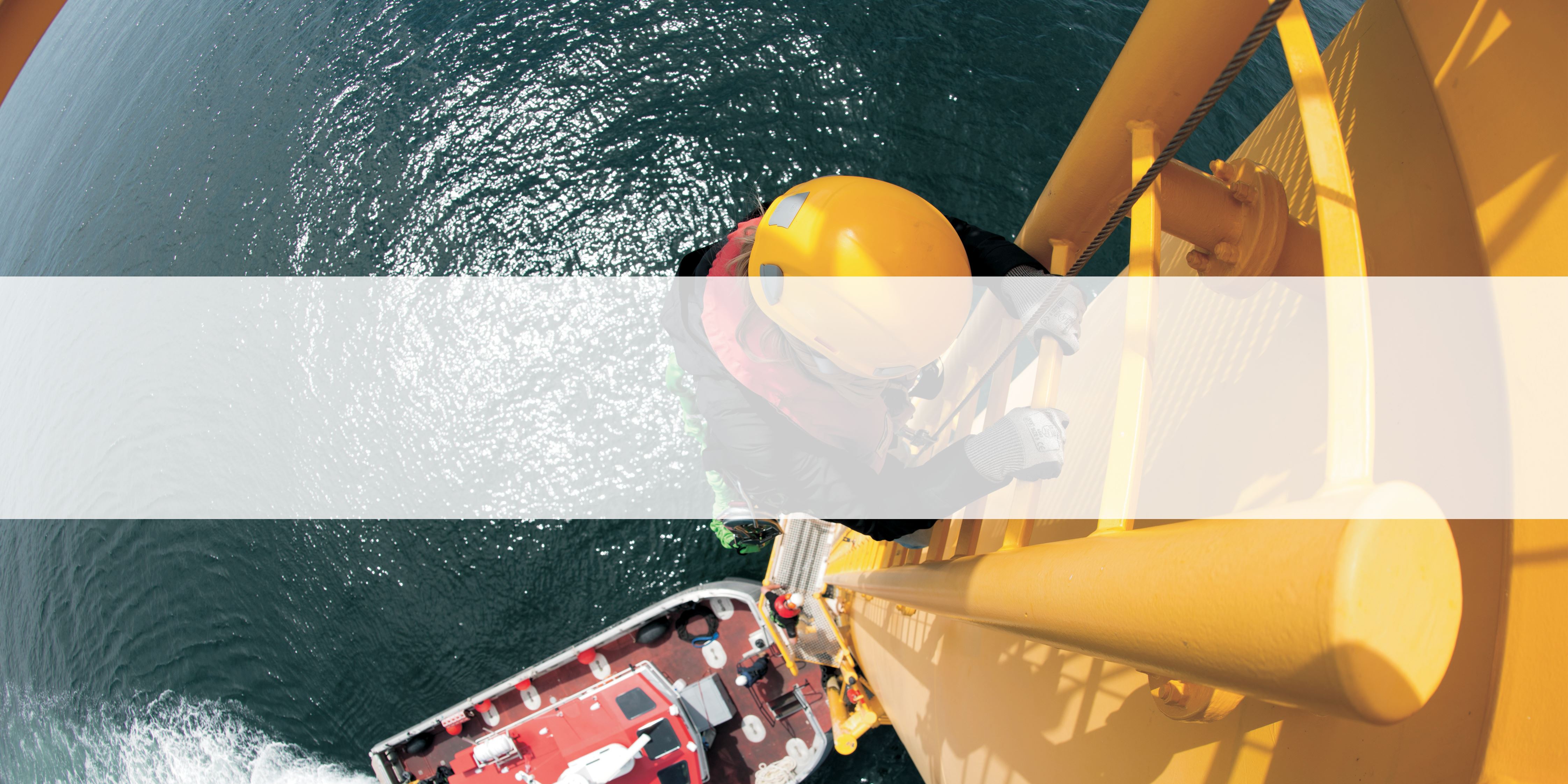
Staying safe at sea during a pandemic
The novel coronavirus presents unique challenges for crews servicing offshore wind turbines
London / 9 July 2020
Pre-crisis, the life of an offshore Siemens Gamesa service technician was already far from simple. Whether braving the bracing ocean air and choppy waves to regularly commute from a home on land to work at sea via a transfer boat, or reaching the wind farms instead while deployed for weeks at a time on a large service operations vessel, logistical complexity and a certain amount of risk is part of the job. Variable weather conditions demand your attention, as do the everyday trials of working at heights. Add a highly contagious and potentially deadly pathogen to the equation, and your professional challenge of keeping the lights for the rest of the world takes on an entirely new dimension.
Pre-crisis, the life of an offshore Siemens Gamesa service technician was already far from simple. Whether braving the bracing ocean air and choppy waves to regularly commute from a home on land to work at sea via a transfer boat, or reaching the wind farms instead while deployed for weeks at a time on a large service operations vessel, logistical complexity and a certain amount of risk is part of the job. Variable weather conditions demand your attention, as do the everyday trials of working at heights. Add a highly contagious and potentially deadly pathogen to the equation, and your professional challenge of keeping the lights for the rest of the world takes on an entirely new dimension.
Contact Siemens Gamesa
Do you have interesting topics for our renewable energy journal? Are you interested in renewable products made by Siemens Gamesa? Or are you thinking about joining our team? Please do not hesitate to contact us.
info@siemensgamesa.comAbove all else, safety
“During Covid times, the health and safety of our teams remains our top priority,” says Dennis Thorlund Elsberg, responsible for Quality Management and Health, Safety & Environment for the Northern Europe/Middle East region. “The pandemic has forced us to rethink our processes and adapt quickly.”
One example: the crew transfer vessels that taxi technicians to the offshore farms. Prior to boarding the boats, every technician must take their temperature at the onshore office before suiting up in the changing room, which now happens according to staggered start times in order to reduce crowding. The crews keep at least two meters apart when making their way to the vessels, and, to allow for proper social distancing while onboard, the boats are less than half full when they leave the shore. The vessel crews themselves sport proper personal protective gear (face masks, gloves, sealed goggles) as well.
“These changes are a bit out of the norm for our technicians, but our teams tell us that they’re grateful for the extra protocols that have been put in place that allow them to stay safe and continue working,” says Dennis.
One example: the crew transfer vessels that taxi technicians to the offshore farms. Prior to boarding the boats, every technician must take their temperature at the onshore office before suiting up in the changing room, which now happens according to staggered start times in order to reduce crowding. The crews keep at least two meters apart when making their way to the vessels, and, to allow for proper social distancing while onboard, the boats are less than half full when they leave the shore. The vessel crews themselves sport proper personal protective gear (face masks, gloves, sealed goggles) as well.
“These changes are a bit out of the norm for our technicians, but our teams tell us that they’re grateful for the extra protocols that have been put in place that allow them to stay safe and continue working,” says Dennis.
Longer stays at sea
For technicians on Siemens Gamesa’s service operation vessels (SOVs), the process is even more stringent: every employee must be tested for Covid-19 prior to boarding. “We perform swab tests and isolate the SOV teams while they await results, which can last between twelve to twenty-four hours, depending on the location,” explains Mark Wright, Head of HSE for Offshore Operations, Service for the Northern Europe/Middle East region. “After all, the last thing you want is contagion on a ship. When they do board, however, they are able to mentally relax knowing that every single person on the vessel with whom they’ll be spending the next two-to-four weeks has tested negative. Since nobody else is allowed to come aboard while they’re at sea, their risk of infection is basically zero on the SOV,” says Mark.
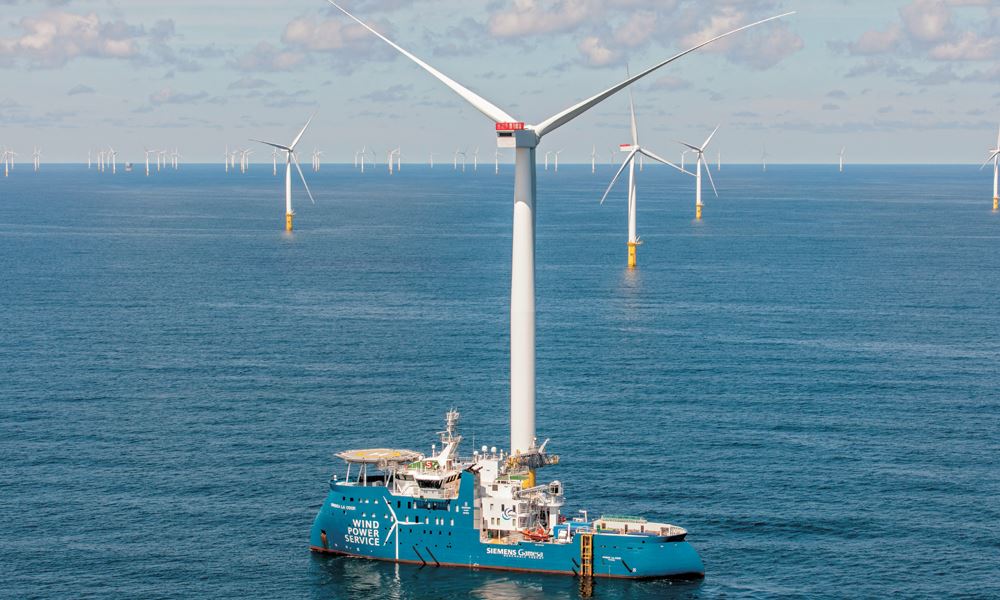
The company’s structured approach to dealing with the public health crisis early is yielding dividends. When two service technicians in Germany tested positive for Covid-19 – both were asymptomatic carriers of the virus – Siemens Gamesa was able to assure the local port authority that no one else from the crew had been infected by them, thanks to the rigid isolation procedures in place while they were being tested. Though maritime regulations typically stipulate a quarantine period of at least two weeks in cases like this, the SOV was able to depart for the wind farm the very same day, saving our company a significant amount of money that would still need to be paid on a daily basis for a leased, docked ship, and keeping the technicians safe and free from infection.
Crisis driving innovation
The need for enhanced hygiene to prevent the spread of Covid-19 is fueling innovation. Offshore turbines are typically not equipped with restroom facilities, and without the benefit of running water, service technicians are unable to properly wash their hands while at each unit. Since frequent hand washing is key to preventing the spread of viruses, technicians are pioneering the use of portable sinks on-site. One example is a self-contained sink that heats water to 40 degrees Celsius and that also captures the associated wastewater. The Siemens Gamesa teams have provided positive initial feedback, and this innovation may stay even when the Covid-19 crisis subsides.
Recreating the “bubble” of a virus-free SOV for sites utilizing crew transport vessels is another intriguing idea that has been suggested. Due to the time required to obtain test results (a half-day to a full day), it’s impractical to test crews who travel back and forth between work and home every day. Moreover, once they leave work, they are exposed to countless other opportunities for infection, either on the bus ride home or while spending time with their families. Might it be possible to create a Covid-free compound near the offshore wind farm, where service technicians check in for longer cycles of a week or two, similar to an SOV? If so, this could be another innovation that survives the immediate public health crisis, due to the many benefits it offers to our crews.
“Innovations like these will ultimately help us to better meet the needs of our customers during this critical time and beyond,” remarks Dennis. “We’ll continue to do whatever it takes to keep the energy flowing and to ensure the safety of our workforce,” he says.
Recreating the “bubble” of a virus-free SOV for sites utilizing crew transport vessels is another intriguing idea that has been suggested. Due to the time required to obtain test results (a half-day to a full day), it’s impractical to test crews who travel back and forth between work and home every day. Moreover, once they leave work, they are exposed to countless other opportunities for infection, either on the bus ride home or while spending time with their families. Might it be possible to create a Covid-free compound near the offshore wind farm, where service technicians check in for longer cycles of a week or two, similar to an SOV? If so, this could be another innovation that survives the immediate public health crisis, due to the many benefits it offers to our crews.
“Innovations like these will ultimately help us to better meet the needs of our customers during this critical time and beyond,” remarks Dennis. “We’ll continue to do whatever it takes to keep the energy flowing and to ensure the safety of our workforce,” he says.
